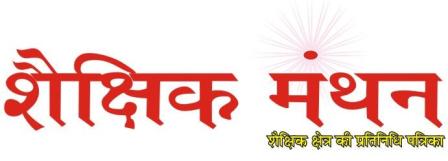CBSE mixes moral and science in its value education overdrive
In a bid to instil values in students, the CBSE appears to have gone on a moral science overdrive, with question papers in Board examinations that assess not just a student’s learning level but also her value judgment. The Central government-run school board has introduced ‘valuebased questions’ this year across all major subjects including the sciences. In a June 19, 2012 circular, the CBSE had informed all its 11,000-plus affiliated schools that the Board exams will now on assess students on value-based questions as well. The circular said that it was widely felt that our education system needs to be further “strengthened” to deliver “values enshrined in our constitution.” Incidentally, the CBSE introduced a value education kit for teachers late last year. The interesting part, however, is just how questions have been structured in the ongoing examinations. Sample this: The Class XII history question paper has a passage on the dethroning of Nawab Wajid Ali Shah by the British and how the same is mourned by the people. The question: What are the human values revealed from the passage? The chemistry question paper has a passage on how a woman rushes her maid to the hospital after she faints while cleaning the house. The woman funds her treatment as well after the maid is diagnosed with low haemoglobin levels. The questions: Which vitamin deficiency leads to low haemoglobin? What are the values exhibited by the woman? Another chemistry question refers to a stressed out MNC employee who is popping sleeping pills without medical consultation but is rescued by his friend who introduces him to yoga. The questions asked of a student are not just on the class of drugs used in sleeping pills but also on the values shown by the saviour friend. The physics question paper talks of a student from a low-income family whose mother requires a sudden endoscopy. The class teacher is arranging funds for the test and the doctor is offering concessions. Now the physics student is asked three questions: What are the values reflected in the action taken by the teachers; how do you appreciate the doctor’s action and, finally, what is the principle of optics used in an endoscopy? The same inescapable emphasis on morality is weaved into questions across subjects bringing in diverse issues like the glass ceiling for women employees, marrying business with philanthropy and setting up business in remote areas of tribal Orissa to offer employment opportunities. So biology questions talk of how a mother is being blamed by the family for delivering a newborn diagnosed with thalassemia, and a colony wanting to throw out an AIDS victim for fear of infection. Geography questions ask the students to explain the three human values required to empower socially and economically disadvantaged people.
